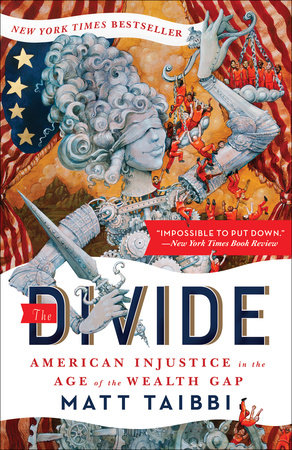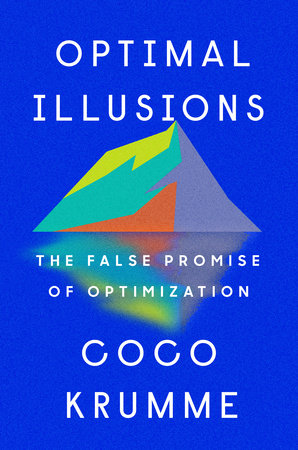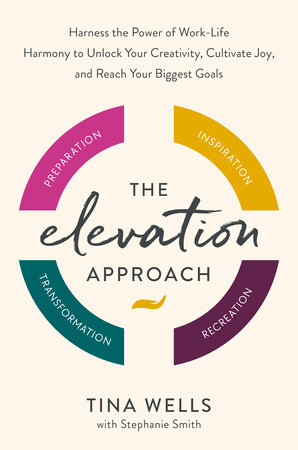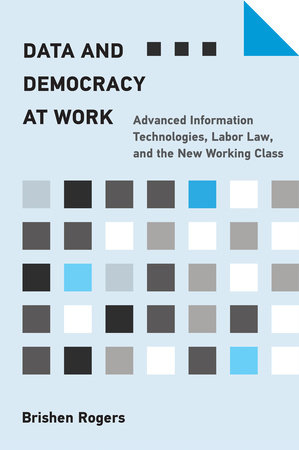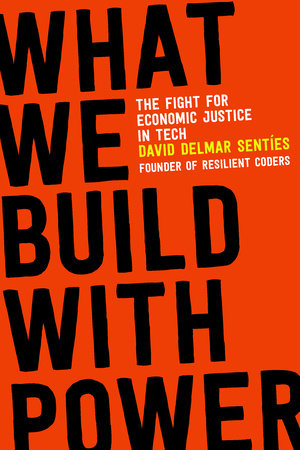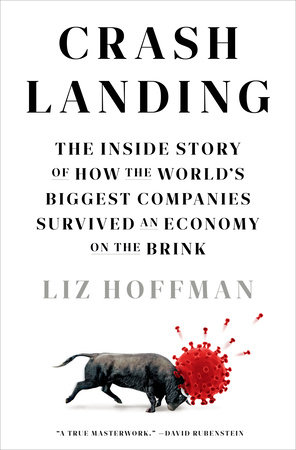Quick Summary
One Sentence Summary
“The Divide” by Matt Taibbi is an eye-opening exploration of America’s systemic inequality in its criminal justice and financial systems.
Big Idea
The central theme is the stark contrast between the treatment of the wealthy and the poor in America, with a focus on how the justice system disproportionately punishes the latter while often letting the former off the hook.
Five Key Ideas
- Inequality in Law Enforcement: The book illustrates how the poor, particularly minorities, face harsher policing and sentencing compared to the rich.
- Wall Street Impunity: Taibbi sheds light on the lack of accountability for major financial institutions and their executives in the wake of the 2008 financial crisis.
- Two-Tiered Justice System: The author presents a compelling argument about the existence of a dual justice system that favors the wealthy.
- Impact of Deregulation: The book discusses the consequences of deregulation in the financial sector and its role in fostering inequality.
- Cultural and Societal Implications: Taibbi delves into the broader societal impact of this divide, including eroded trust in institutions and increased social tension.
Actionable Advice
Reflect on the biases present in the justice system and consider supporting policies or organizations that aim to create a fairer legal landscape for all.
About the Author
Matt Taibbi is an American author and journalist known for his investigative reporting on politics, finance, and media. He has written for Rolling Stone and authored several books.
Read Next
For further exploration of financial crises, consider “Too Big to Fail” by Andrew Ross Sorkin. To delve deeper into issues of inequality, “Capital in the Twenty-First Century” by Thomas Piketty is a compelling read. For another perspective on America’s justice system, “Just Mercy” by Bryan Stevenson offers a profound look into the world of wrongful convictions and the fight for justice.
In Depth
Inequality in Law Enforcement
Matt Taibbi’s “The Divide” delves deeply into how law enforcement unequally impacts the poor, particularly minorities. He paints a vivid picture of a system that seems to operate with two rule books: one for the rich and another for the poor. This disparity is most evident in how different social strata are policed and prosecuted.
A striking example Taibbi gives is the contrasting treatment of Wall Street executives and those caught in the New York Police Department’s (NYPD) stop-and-frisk policy. While Wall Street executives involved in the 2008 financial crisis largely escaped prosecution, thousands of young, mostly black and Latino men in New York were routinely stopped, frisked, and often arrested for minor infractions or no crime at all. This example underscores a troubling reality: the scales of justice tip based on wealth and race.
The book meticulously details cases of low-income individuals facing severe consequences for minor offenses. One such example is the story of Andrew Brown, a man arrested for blocking pedestrian traffic—a charge often used by the NYPD to justify stop-and-frisk arrests. Brown’s case highlights the absurdity and injustice prevalent in the system. Taibbi writes:
“It was the perfect symbol of the era: the world’s most powerful financial executives, facing no consequences for their acts, had just been told that their crimes were not crimes at all, while the poorest and most vulnerable people in the city were being herded into the jails, essentially for being in the wrong place at the wrong time.”
This quote encapsulates the book’s core argument about law enforcement inequality. Taibbi contrasts the leniency shown to those responsible for a global economic meltdown with the aggressive policing of minor, non-violent offenses in disadvantaged communities.
Taibbi also explores the consequences of this inequality. For the wealthy, there’s a sense of invincibility, a belief that the law does not apply to them. For the poor, there’s a growing mistrust and fear of a system that seems rigged against them. This divide has far-reaching implications, breeding resentment and eroding faith in the justice system.
The author doesn’t just point out problems; he also sheds light on the historical and political factors that have led to this divide. From policies that incentivize arrest quotas to laws that disproportionately affect the poor, Taibbi dissects the systemic issues at play.
In essence, “The Divide” is a stark reminder of the glaring inequalities in American law enforcement. It’s a call to acknowledge and address the biases that allow such disparities to persist. By highlighting cases like Andrew Brown’s, Taibbi not only exposes the injustices but also humanizes the often faceless victims of this unequal system.
Wall Street Impunity
The second key idea in Matt Taibbi’s “The Divide” focuses on the lack of accountability faced by Wall Street and its executives, especially in the aftermath of the 2008 financial crisis. Taibbi illustrates a system where the wealthy and powerful seem to play by a different set of rules, often escaping consequences for actions that have far-reaching, sometimes devastating effects.
Taibbi dives into the heart of the 2008 financial meltdown, exposing how major financial institutions engaged in deceptive and risky practices, yet faced minimal, if any, legal repercussions. A striking example is the case of Lehman Brothers. Despite engaging in questionable accounting and risky financial maneuvers that contributed significantly to the financial crisis, no senior executives were criminally charged. This is in stark contrast to the aggressive pursuit of minor offenders in other areas of the legal system.
The disparity is starkly illuminated by Taibbi’s examination of the Lehman Brothers’ “Repo 105” accounting scandal. This practice involved classifying short-term loans as sales to hide the company’s liabilities, misleading investors and regulators. Despite clear evidence of wrongdoing, there were no high-level prosecutions. Taibbi highlights this discrepancy, stating:
“This was a profound statement about who gets prosecuted in America and who doesn’t. If you’re a drug user, or you’re unemployed and you steal $20 worth of merchandise, you’re going to jail; but if you’re part of the professional class, and you steal $20 million, you’re not.”
This quote drives home the idea of “Wall Street Impunity.” It’s not just about what was done, but who did it. The powerful seem to operate with a sense of immunity, underlining the divide Taibbi argues permeates the justice system.
The lack of accountability extends beyond Lehman Brothers. The author points out numerous other instances where big banks engaged in fraudulent activities, from mortgage misrepresentations to manipulating interest rates, yet their executives remained untouched. The penalties, when levied, were often just fractions of the profits made from these illicit activities, doing little to deter future wrongdoing.
Taibbi argues that this impunity has broader implications. It fosters a culture of recklessness and moral hazard within the financial sector. When there are no significant consequences for risky and unethical behavior, there’s little incentive to change. This creates a dangerous precedent, not just for the economy, but for the moral fabric of society.
“Wall Street Impunity” as laid out in “The Divide” is a powerful commentary on the inequalities within the American justice system. It challenges readers to question the fairness of a system where financial status and connections can overshadow the rule of law. Through detailed examples like Lehman Brothers, Taibbi not only exposes the problem but also invites a critical examination of the principles upon which justice is served.
Two-Tiered Justice System
Matt Taibbi’s “The Divide” presents a compelling case for the existence of a two-tiered justice system in the United States. This system starkly favors the wealthy, while the poor bear the brunt of its harshness. Taibbi brings this to light through detailed reporting and poignant examples.
A striking illustration of this two-tiered system is the story of Abacus Federal Savings Bank. Unlike the major financial institutions that played significant roles in the 2008 financial crisis and got off lightly, Abacus, a small family-run bank serving the Chinese-American community in New York, became the only U.S. bank to face criminal charges. Despite its relatively minor role and efforts to correct internal issues, Abacus faced a full-blown criminal trial.
Taibbi contrasts the harsh treatment of Abacus with the kid-glove handling of major banks involved in far more serious financial scandals. He writes:
“If you’re a big bank and you launder nine billion dollars for murderous drug cartels and violate international sanctions by doing business with terrorist states — and you admit to it — you don’t get prosecuted. But if you’re a small, family-owned bank catering to an immigrant community, and one of your ex-employees steals some money, then you might get indicted.”
This quote underscores the fundamental inequity at the heart of the justice system. It’s not just about what you did, but who you are and what resources you have. This case exemplifies how smaller entities, often without the vast resources or political connections of larger institutions, face the full force of the law.
The Abacus case is a microcosm of a broader issue. Taibbi argues that the justice system is bifurcated: one where the elite navigate with ease and another where ordinary people, especially the disadvantaged, struggle against a system stacked against them. He suggests that this divide goes beyond individual cases, permeating the very foundations of American jurisprudence.
Taibbi’s exploration into the two-tiered justice system is an indictment of not only the legal system but also of societal values. It raises questions about fairness, equality, and the very principles that are supposed to underpin justice in America. By juxtaposing the stories of Wall Street giants and small entities like Abacus, Taibbi forces readers to confront uncomfortable truths about power, privilege, and justice.
In essence, this key idea of a two-tiered justice system highlights a disturbing disparity. It’s a call to recognize and address the imbalances that allow such a system to exist. Taibbi, through detailed examples like the Abacus case, not only sheds light on these injustices but also challenges us to envision a more equitable legal system.
Impact of Deregulation
In “The Divide,” Matt Taibbi turns his incisive eye to the consequences of financial deregulation, revealing how it has contributed significantly to the inequality in America’s justice system. He argues that the deregulation of the financial industry has not only precipitated economic crises but has also fostered a legal environment where the wealthy benefit at the expense of the less privileged.
Taibbi focuses on the repeal of the Glass-Steagall Act, a crucial example of deregulation. This 1933 law had separated commercial and investment banking, a safeguard against the kind of risk-taking that led to the Great Depression. Its repeal in 1999, part of a broader trend of financial deregulation, set the stage for the 2008 financial crisis. Big banks now had the freedom to engage in risky investments with their depositors’ money, a move that would have disastrous consequences.
The impact of this deregulation becomes apparent when Taibbi explores the aftermath of the 2008 crisis. While millions of Americans faced foreclosure and job losses, major financial institutions, buoyed by government bailouts, emerged relatively unscathed. Taibbi writes:
“Instead of reining in the corrupt and criminally incompetent behavior of the financial sector, the government rewarded them for their malfeasance. Meanwhile, ordinary Americans saw little relief from the harsh punishments meted out for even their smallest missteps.”
This quote points to the stark dichotomy created by deregulation: a system where the powerful are insulated from the consequences of their actions, while those at the bottom are left vulnerable. It’s not just an economic issue; it’s a legal and moral one.
Deregulation, as Taibbi outlines, isn’t just about laws or policies. It’s about the shifting values of a society that prioritizes corporate profits over public welfare. It’s about the erosion of safeguards that once kept corporate power in check and protected the average citizen.
Through the lens of the 2008 crisis and its aftermath, “The Divide” reveals how deregulation has led to a concentration of wealth and power, exacerbating the inequalities within the justice system. Taibbi’s exploration goes beyond mere economic analysis; it’s an indictment of a system that seems increasingly tilted in favor of the few at the expense of the many.
In sum, the impact of deregulation, as portrayed in “The Divide,” serves as a sobering reminder of the consequences of unchecked corporate power. It’s a call to recognize the interconnectedness of economic policies, legal systems, and societal values. By dissecting events like the repeal of the Glass-Steagall Act and its fallout, Taibbi not only critiques the present but also urges us to consider the kind of future we’re shaping.
Broken Immigration System
In “The Divide,” Matt Taibbi turns his critical eye towards the U.S. immigration system, illustrating its failures and the human toll it takes. He argues that this system is a stark example of the inequality and injustice prevalent in American society, particularly for those lacking wealth and status.
Taibbi delves into the story of undocumented immigrants and the labyrinthine, often hostile immigration process they face. A poignant example is the case of several Guatemalan immigrants in Postville, Iowa. In 2008, these workers at a meatpacking plant were subjected to one of the largest immigration raids in U.S. history. They were treated with an alarming lack of due process and dignity, processed en masse, and given harsh criminal sentences for working without proper documentation.
Taibbi highlights the dehumanizing aspect of this treatment. He writes:
“The Postville raid was a shocking window into how the machinery of criminal justice works for the poor and powerless. Here were hundreds of people, herded like cattle, processed, and then disposed of with assembly-line efficiency.”
This quote underscores the inhumanity of the system. It’s not just about law enforcement; it’s about a system that treats certain individuals not as people in need of understanding or assistance, but as problems to be efficiently managed and removed.
The Postville case is emblematic of broader issues within the U.S. immigration system. Taibbi points out the stark contrast between the experiences of wealthy, often white immigrants, and those from poorer backgrounds. The latter group faces a maze of bureaucratic hurdles, aggressive law enforcement, and a system seemingly designed to dehumanize and discourage them.
The broken immigration system, as portrayed by Taibbi, is not just a legal issue but also a moral one. It raises questions about American values, about who gets to be part of the American dream, and on what terms. It’s a system where the dividing line is often wealth and race, determining who receives compassion and who faces the full, often brutal, force of the law.
In essence, “The Divide” casts a spotlight on the deep flaws within the U.S. immigration system. It’s a call to acknowledge the human beings behind the headlines and policies. By presenting detailed cases like the Postville raid, Taibbi not only reveals the systemic issues but also the personal stories of those caught in the machinery of a broken system.
Actionable Advice
- Stay Informed: Regularly read about financial regulations and policy changes. Knowledge is power.
- Advocate for Fairness: Support policies promoting equal justice. Vote for representatives committed to reform.
- Community Engagement: Get involved in local initiatives addressing inequality. Small steps lead to big changes.
- Support Legal Aid: Donate to organizations providing legal assistance to the underprivileged.
- Educate Others: Share insights from “The Divide” with friends and family. Awareness can spark action.
- Promote Transparency: Encourage transparency in financial and legal systems. Demand accountability from leaders.
- Challenge Biases: Reflect on personal biases. Work towards a more inclusive perspective.
- Support Immigration Reform: Advocate for fair and humane immigration policies. Empathy makes a difference.
- Bank Ethically: Consider banking with institutions practicing ethical and transparent policies.
- Stay Hopeful: Believe in the potential for change. Optimism fuels progress.
About the Author
Matt Taibbi, born in 1970, is a prominent American journalist and author. He grew up in Boston, Massachusetts. Taibbi studied at Bard College and Leningrad State University. His career took off with contributions to “The Moscow Times” and “The eXile,” where he honed his investigative skills. Known for his sharp wit and incisive commentary, Taibbi gained recognition at “Rolling Stone” magazine, covering politics and finance. His work often critiques corporate greed, media bias, and political corruption. Taibbi is a New York Times bestselling author with notable books like “Griftopia” and “The Great Derangement.” His writing is driven by a belief in justice, transparency, and accountability. He advocates for the underdog and challenges power structures. A recipient of the National Magazine Award, Taibbi’s influence extends to a wide audience, shaping public discourse on critical issues.
Read These Next
You might like these similar books
- “Griftopia” by Matt Taibbi
- “Dark Money” by Jane Mayer
- “Nickel and Dimed” by Barbara Ehrenreich
- “The Shock Doctrine” by Naomi Klein
- “Capital in the Twenty-First Century” by Thomas Piketty
FAQ
Q: What is “The Divide” by Matt Taibbi about?
A: The book examines the inequality in the American justice system, focusing on how the rich and poor are treated differently.
Q: Is “The Divide” based on real events?
A: Yes, it’s based on real cases and events, highlighting disparities in the justice system.
Q: Who should read this book?
A: Anyone interested in social justice, finance, law, and political enthusiasts.
Q: Is the book difficult to understand?
A: No, it’s written in simple language, making complex issues accessible.
Q: Does the author offer solutions to the problems discussed?
A: Taibbi highlights issues more than solutions, but he does suggest the need for systemic changes.
Q: How long is the book?
A: It’s a medium-length book, around 448 pages, packed with detailed reporting.
Q: Can “The Divide” be considered an unbiased work?
A: While it’s fact-based, Taibbi’s personal views on justice and inequality are evident.

